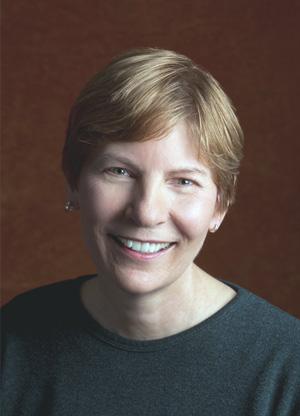By Kathy Berken
I think that I might be a racist. Let me explain.
I’m a Catholic baby boomer Caucasian whose ancestors were German immigrants. I live in the ethnically diverse Twin Cities where there is a growing population of people from Somalia. St. Catherine University in St. Paul, where I earned my master’s, is home to a large number of Muslim women who wear traditional garb such as the hijab to cover their heads like a veil. Others also wear the traditional jilbaab, a loose-fitting garment that covers all but their hands and face. In some ways, they dress very much like the sisters who taught me in grade school in the ‘50s.

Although I saw many young Muslim women on campus, I didn’t have much personal interaction with them. Having lived in Clinton, Iowa, and Green Bay, Wis., the other years of my adult life, I’ve not experienced much ethnic diversity. So, what happened after a recent meeting near campus should not have surprised me.
Yet it did.
A colleague was talking with a woman dressed in a jilbaab and a hajib. I walked up to them and the woman reached out to shake my hand, and we introduced ourselves. Rhonda is a St. Kate’s student who is an intern at the spirituality center where I work. The first question out of my mouth was, “Where are you from?” Now, right there was the problem. Even though my intention was to welcome her, especially if she was new to our country, I wondered later if I would have asked that same question of a student who wasn’t dressed as she was. No, I had to admit, I would not have, unless our accents were vastly different. But Rhonda’s was Midwestern, so I should have dropped it right there when she responded, “I’m from here.”
I foolishly persisted. Two questions later, seeming frustrated, she said, “I came here when I was 5.” Then she paused, “From Somalia.” I felt the awkwardness of the moment but she was gracious. Because I had come into the conversation with my colleague only to meet Rhonda, I wished her luck in school, was glad she was helping us, and walked on.
I felt awful the rest of the day. This is not trivial. Racist behavior sometimes wears good intentions, as mine did, but underneath the veneer lay the truth that we can easily separate and make assumptions about whole groups of people based on how different they are from us. That’s not fair to the person or to her culture. And it does nothing to help us grow.
Nearly one-third of all U.S. Somalis live in Minnesota, with the greatest numbers of refugees arriving after the start of their civil war in the 1990s. Part of me wants to welcome newcomers to the region. Another part of me is just curious. But I discovered that my good intentions are naïve. She didn’t voice it, but Rhonda might tire of the question, “Where are you from?” She’s a Minnesotan who happens to wear traditional Muslim clothing. I wrongly assumed she was a refugee or a recent immigrant. She’s neither, but I didn’t give her a chance. I jumped to categorize her. That was unfair, shortsighted, and racist. I hesitate even to say “somewhat racist” because that seems to justify my attitude.
I do not believe I judged her, but because I classified her and made false assumptions, I was not immediately open to knowing her as an individual human being. That is what racism is to me.
But I did learn some important lessons. I learned that I needed to be jostled from my narrow assumptions and beliefs that I don’t put people in boxes, when, in fact, I do.
Paul said, “There is neither Jew nor Gentile, neither slave nor free, nor is there male and female, for you are all one in Christ Jesus” (Gal. 3:28). As a Christian, it’s high time I start to live that.
(Kathy Berken has a master’s degree in theology from St. Catherine University, St. Paul, Minn. She lived and worked at The Arche, L’Arche in Clinton 1999-2009 and is author of “Walking on a Rolling Deck: Life on the Ark (stories from The Arch).”)











